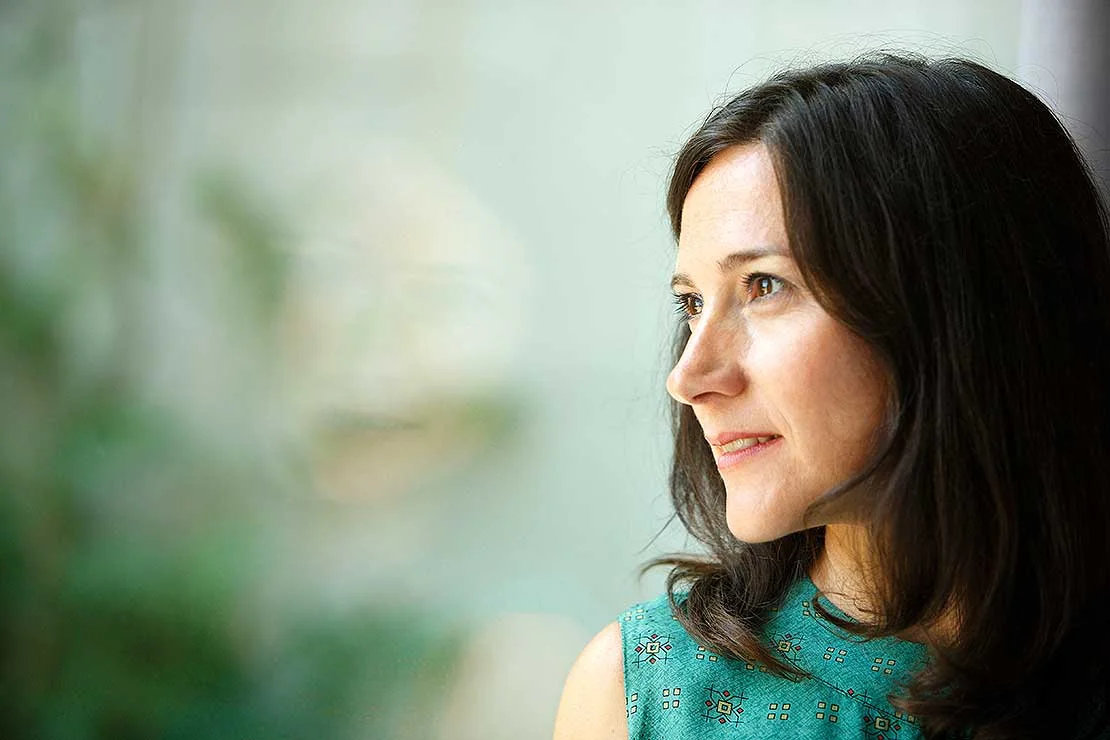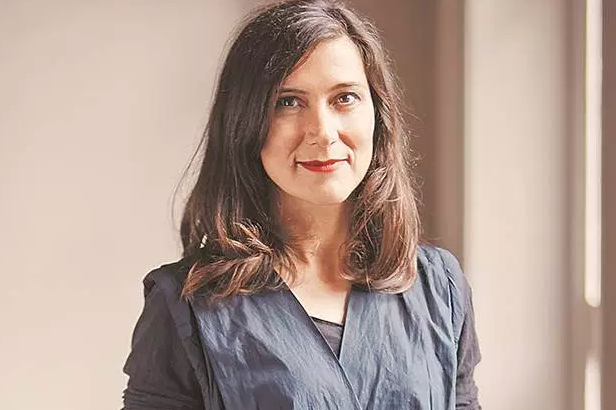THANK YOU TO STEFAN MARIA ROTHER FOR USE OF THIS LOVELY PORTRAIT OF KATE!
Kate Fletcher, photographed by by © Stefan Maria Rother, Berlin
If you've listened to this Episode on Apple Podcasts/iTunes already (don't forget to subscribe - it's free), welcome to the SHOW NOTES. Or scroll down to LISTEN.
We have a Patreon page. Love the podcast? To support, Click here .
EPISODE 89 FEATURES KATE FLETCHER
By 2030, we keep going as we are, the fashion industry will manufacture 102 million tons of clothes and shoes. For comparison, that's the weight equivalent of half million blue whales!
Growth is not something we like to question in the fashion industry (or indeed any industry). In our capitalist system, commercial success is measured by growth. But, how can we support infinite growth on a finite planet?
“If we could live within the limits of what we’ve already got, we could get a glimpse of what fashion might be like beyond consumerist obsessions,” says this week's guest, Kate Fletcher.
Kate is a professor at the Centre for Sustainable Fashion in London. She is a founding member of the Union of Concerned Researchers in Fashion, and the author of a wonderful book called Craft of Use. In it she asks, what if we paid more attention to the tending and wearing of garments over their acquisition?
Photograph katefletcher.com
WHAT WE TALK ABOUT…
RELATED: Listen to the Episode with Dilys Williams here. An the one with Timo Rissanen here.
According to the PULSE OF THE FASHION INDUSTRY REPORT 2019, the pace of change is slowing. Find out more here.
The UNION OF CONCERNED FASHION RESEARCHERS was formed in 2018 by (in alphabetical order) Kate Fletcher, Lynda Grose, Timo Rissanen and Mathilda Tham. They were inspired by the Union of Concerned Scientists, formed in 1969 in the USA.
Their MANIFESTO begins: “Planetary systems are under threat. Fashion and clothing products and activities contribute to the destruction of these systems. They also contribute to the increasing disconnection between humans and Earth.
We, the Union of Concerned Researchers in Fashion, recognise that the response of the fashion sector to the intensifying ecological crisis has been – and continues to be – over-simplified, fragmented and obstructed by the growth logic of capitalist business models as they are currently realized and practiced. Further we recognize that uncritical research findings, duplication of research, reduction and misuse of scientific and technical knowledge reinforces and speeds up this over-simplified condition in the fashion industry.
It is our view that concerned fashion and clothing researchers can no longer remain uninvolved or complacent and that as researchers, we need to conduct ourselves in new ways. We call on fashion researchers to unite for concerted action and leadership over the use of scientific and artistic knowledge that is more relevant to and commensurate with the multiple crises we face.” READ IT IN FULL HERE
Waste not, want not.
"It is easier to imagine an end to the world than an end to capitalism," is a quote from Mark Fisher, the British author of Capitalist Realism: Is There No Alternative?
Kate imagines multiple fashion systems shaped by the particulars of place, and by the people impacted by it. “Localism,” she says, “is an extraordinarily powerful way to begin to bering the benefits of decision-making home.”
The Union of Concerned Researchers in Fashion advocates for whole systems and paradigm change, beyond current norms and business-as-usual. The fashion industry is very far away from true sustainability, and the measures of progress currently used are based on reducing impacts, to ‘do less harm’.”
WFT is centripetal? “Look on Wikipedia!” says Kate. Okay, we did: it’s a force that acts on a body moving in a circular path and is directed towards the centre around which the body is moving.
MACCLESFIELD was once a thriving centre of silk production. Read more in this BBC story.
LIVERPOOL IN THE THATCHER ERA. Kate says Liverpool was “put into managed decline”. She’s right. According to the BBC: Margaret Thatcher was secretly urged to consider abandoning Liverpool to a fate of ‘managed decline’ after the Toxteth riots in 1981. Government files released in 2011 under the 30-year rule show senior Tory ministers urged her not to spend public money on the ‘stony ground’ of Merseyside.
IS THE UNION ANTI-CAPITALIST? Nope, says Kate, “but we’re against a certain sort of uncritical approach to all of this. A lot of people see current ways to go about engaging with fashion provision they see it as values neutral, and none of it is, because it’s explicitly propping up the status quo.
LOCALISM Kate’s vision combines regional, smaller scale manufacturing and locally produced fibres, and beyond the material and manufacturing elements, a whole world of use, mending, altering, adapting, sharing and living with clothes. “Everyone always tries to reduce fashion to something we make and consume - I resist that!” she says.
READING LIST…
The “Three-stage jacket” in Kate’s book Craft of Use
A NOTE ON OUR MUSIC: IT IS BY OUR FRIEND MONTAIGNE, WHO SANG A SPECIAL ACOUSTIC VERSION OF "BECAUSE I LOVE YOU" JUST FOR US. IT'S FROM HER ALBUM GLORIOUS HEIGHTS.
THANK YOU FOR JOINING THE WARDROBE CRISIS CONVERSATION. WE'LL HAVE A NEW EPISODE FOR YOU EVERY WEDNESDAY. CAN YOU HELP US SPREAD THE WORD? WE'D LOVE YOU TO TELL YOUR FRIENDS & LEAVE A REVIEW IN APPLE PODCASTS.
Until next time,
Clare x







